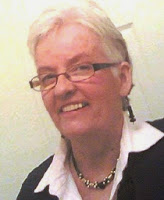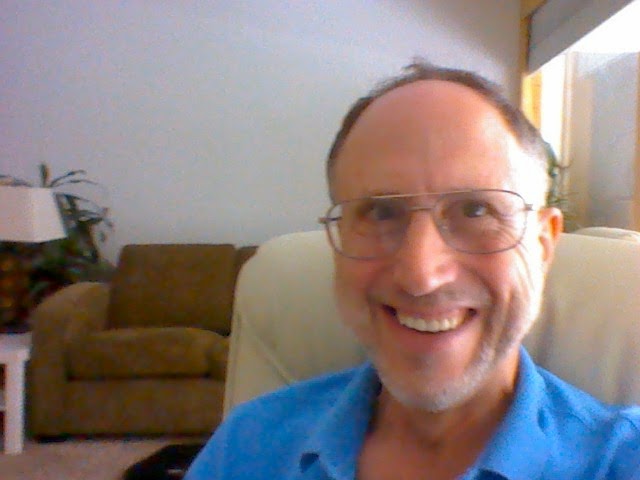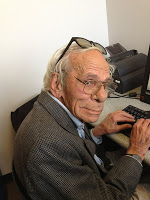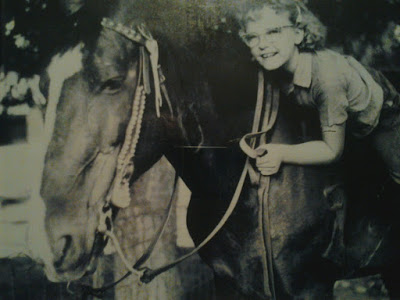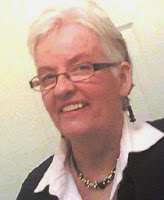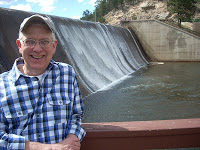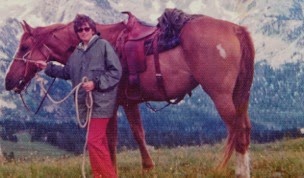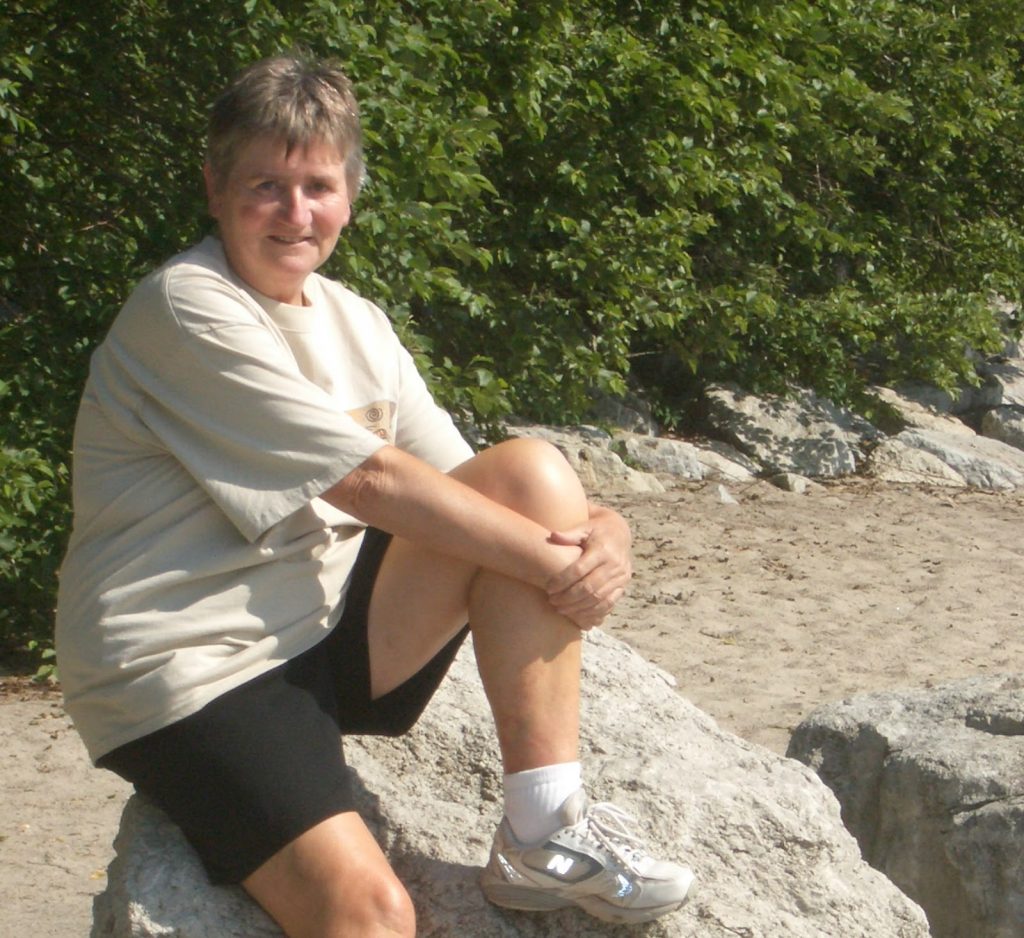Limericks, by Will Stanton
There once was a possimum.
T’was said he had no guts inum.
On the highway one day
He got in the way.
Keep superlative remarks to a minimum.
There once was a sea-sick lama
On a ferry to Rama.
A hippo near by
Got it on the fly.
Oh! The resulting drama!
There once was a hip’podimi
Who loved raspberry pie.
He’d roar and roar
Until he got more.
He was the only purple one I seen.
There once was a purple papoose
Who lived with a Manhatten moose.
For dinner one day
A bale of hay
Was picked from the moose’s toothes.
Here he lies dead
With a tombstone at his head.
But at his feet
A lily sweet?
No—-broccoli instead.
A burly baboon
From deep in Rangoon
Swam in a race with a schooner.
He took out a spoon
And whipped up a typhoon
And got to the finish the sooner.
There once was an old dinosaur
Who loved a wrinkled condor.
He gave her a ring
And jumped on her wing
And neither’s been seen any more.
© 1962 by Will Stanton
About the Author
Will Stanton had a life-long fascination with people and their life stories. He also realized that, although his own life had not brought him particular fame or fortune, he too had some noteworthy experiences and, at times, unusual ones. In the SAGE Story Time group, he derived pleasure and satisfaction participating in the group. He always put thought and effort into his stories hoping his readers would find them interesting.
Limerick, by Ron Zutz
There was a young man from Lake Tahoe
Whose puns were so bad we cried, “Oh, no!”
Said he with a grin,
“My puns are no sin.
My wit makes no sense ’cause I’m Homo sapien.”
© 13 June 2017
About the Author
Ron Zutz was born in New Jersey, lived in New England, and retired to Denver. The best parts of his biography have yet to be written.
Christmas 1905, by Cecil Bethea
time when memories from years long gone bubble up in our minds.
into a golden world never marred by human
excess.
know there are exceptions to this ideal.
Forge, Christmas could have been another day of hunger and misery.
or grey along the Rappahannock near Fredericksburg,
by day and sang in unison by night,
Dust Bowl seared
I have done other things, my fame now rests upon the durability of my
partnership with Carl Shepherd; we have been together for forty-two years and
nine months as of today, August 18th, 2012.
I was born in Macon, Georgia in 1928, I was raised in Birmingham during the
Great Depression. No doubt I still carry
invisible scars caused by that era. No
matter we survived. I am talking about
my sister, brother, and I. There are two
things that set me apart from people.
From about the third grade I was a voracious reader of books on almost
any subject. Had I concentrated, I would
have been an authority by now; but I didn’t with no regrets.
the University of Alabama and the Air Force, I came to Denver. Here I met Carl, who picked me up in Mary’s
Bar. Through our early life we traveled
extensively in the mountain West. Carl
is from Helena, Montana, and is a Blackfoot Indian. Our being from nearly opposite ends of the
country made “going to see the folks” a broadening experience. We went so many times that we finally had
“must see” places on each route like the Quilt Museum in Paducah, Kentucky and
the polo games in Sheridan, Wyoming. Now
those happy travels are only memories.
amongst the first members of the memory writing class. While it doesn’t offer criticism, it does
offer feedback. Also just trying to
improve your writing helps no end.
is now in a nursing home; I don’t drive any more. We totter on.
Our Path, by EyM
willingly follow.
tunes in, listens, cares, inspires,
moves upward.
loneliest person is the one
never learn to share,
instead to take control.
trained unworthiness kneels
of the selfish controller, oppression results.
of their own oppression,
downward,
controller has no chance to rise.
to them on the tennis court of life,
their perfect deadly serve.
stands waiting ball in hand in,
control, and completely alone.
path emerges from courageous sharing
liberating ability to trust.
strong light shines from each person
side by side these lights
the path for everyone
onward, and upward
Colorado, she followed her Dad to the work bench to develop a love of using
tools, building things and solving problems. Her Mother supported her talents
in the arts. She sang her first solo at age 8. Childhood memories include
playing cowboy with a real horse in the great outdoors. Professional
involvements have included music, teaching, human services, and being a helper
and handy woman. Her writing reflects her sixties identity and a noted
fascination with nature, people and human causes. For Eydie, life is deep and
joyous, ever challenging and so much fun.
We Shall Never Know, by Carlos
poet much wiser than I recognized that journeys never undertaken and roads
never traversed, nonetheless have the power to burden. I find myself looking
back over the decades, forever ambivalent about those uncharted journeys. And
although I celebrate that I did take a less traveled road, which, in fact, made
a difference, a wonderful difference, the shadowy vignettes of a past unlived
on occasion haunt me like the dripping of a faucet on a silent night.
and I never danced; we never touched; we never spoke of the drives and passions
that might have lubricated our lives. It was a different time, a different
place. It was a time when to unsheathe our souls to judgmental eyes could have
thwarted careers, made futures bleak, and shattered lives like frost descending
upon tender blades of green grass. And though our connection consisted of two
twirl-a-cups gyrating around a circular orb, I have come to believe that had we
lived in a freer world, a more inclusive one, he and I might have given light
to secrets destined to remain forever occulted, held hands on blustery winter
nights, and charted voyages that alas never sailed away. In retrospect he was
my first infatuation, the first man with whom I dared to dream that somewhere,
someplace we could make our peace. We could have been oblivious to a sanctimonious
Brokeback Mountain world beset on
sacrificing us, for no other reason than our souls quested after forbidden
dreams. But we never danced; we never touched; we never found the courage to
challenge the consequences of reaching out to thwart ingrained fears. Thus, we
never transformed hope into possibilities.
were so different. He was passionate about Ché Guevara and César Chávez, about
the injustices of Chilean tyrants and brutish money changers. I was passionate
about my intangible world. How often I would find myself walking alone,
surrounded by the voices of poets and dreamers, philosophers and stargazers.
While immersed in my rhymes and rhythms of far-off melodies, I would focus on the
intricate cobwebbed anatomy of elm leaves, on the oceans mirrored within raindrops,
on the starry convolution of heavens above. Thus, in those early years, we trekked
in diametrically different worlds. We allowed our fears of the unknown, of
ourselves, to silence what in retrospect I now know nestled within us. We could
have, we should have, but we never did speak of our cryptic secrets, and time,
like a shape-shifting cloud flitted out of our reach.
the years, I finished my studies. Over the years, I lost my innocence in foreign
lands. I thought of him often, but I allowed myself to believe that the past
was but an epitaph on crumbling sandstone. Years later, an act of serendipity
became our swan’s song when upon my return home from distant shores, I prepared
to root my life. Acknowledging my forays into the future, I celebrated among strangers
at my favorite restaurant. As fate would have it, he was there too, alone,
following a day of toiling in this world of the mundane. Instant recognition erupted
in our eyes, and although we spoke so briefly about things so trivial, we never
unshackled the chains that bound us. After all, the world still remained
dangerous for men like us. Thus, what needed to be said remained forever
fossilized within our respective hearts. Saying goodbye so long ago, I now
recognize that he wanted to say more; I can only hope he knew I too longed to
reach out, but instead with a quiet desperation I stifled my longings. Even as
I walked away and turned to look at him, I could not break the insidious spell
spun by those who had authority over us. And thus, we never danced; we never
touched, we never let the sun break through the storm. We will never know what
could have been. Suffice to say, although the road I took directed me away from
him, I remain forever grateful that this traveler did, in spite of himself, step
toward a wondrous journey. I can only hope his path was likewise emblazoned
with innumerable constellations.
the Author
wrote, “I know who I am and who I may choose to be.” In spite of my constant quest to live up to
this proposition, I often falter. I am a
man who has been defined as sensitive, intuitive, and altruistic, but I have
also been defined as being too shy, too retrospective, too pragmatic. Something I know to be true. I am a survivor,
a contradictory balance of a realist and a dreamer, and on occasions, quite
charming. Nevertheless, I often ask
Spirit to keep His arms around my shoulder and His hand over my mouth. My heroes range from Henry David Thoreau to
Sheldon Cooper, and I always have time to watch Big Bang Theory or Under the
Tuscan Sun. I am a pragmatic romantic and
a consummate lover of ideas and words, nature and time. My beloved husband and our three rambunctious
cocker spaniels are the souls that populate my heart. I could spend the rest of
my life restoring our Victorian home, planting tomatoes, and lying under
coconut palms on tropical sands. I
believe in Spirit, and have zero tolerance for irresponsibility, victim’s
mentalities, political and religious orthodoxy, and intentional cruelty. I am always on the look-out for friends,
people who find that life just doesn’t get any better than breaking bread
together and finding humor in the world around us.
To Peggy, My Horse, by EyM
away in your humble little barn filled me deeply. I savored the rich natural smells, and loved
so well your big deep brown eyes,
and the warm air from your soft
nostrils. So carefully you moved your
big puffy lips to take my gifts. These
were moments precious and forever true.
was there a brown so lovely as your hair.
Never was there a cologne so soothing as your smell. Never was a flower’s aroma any sweeter than
the hay where we communed. I believe my
visits were deep in your heart too. You
were my get away, my comforter.
loved to climb on your back and hug you as you lay on the ground. You made me laugh as you got up so smoothly
that I could hang on and go up with you.
Looking back now, you always took me to the barn. I suppose you knew I’d give you some grain
and my little hand full of hay.
we saddled up and traveled from there, someone else was with us and talk took
over. I trusted you and reveled in those
rides. But the times alone with you at
your hay window were more special. Those
were the secret healing heart times.
Thank you Peggy. I think you
understood that I needed you.
the work bench to develop a love of using tools, building things and solving
problems. Her Mother supported her talents in the arts. She sang her first solo
at age 8. Childhood memories include playing cowboy with a real horse in the
great outdoors. Professional involvements have included music, teaching, human
services, and being a helper and handy woman. Her writing reflects her sixties
identity and a noted fascination with nature, people and human causes. For
Eydie, life is deep and joyous, ever challenging and so much fun.
Exploring, by Phillip Hoyle
explorations I really enjoyed. They usually took place in the stacks at the
public library, at the piano when facing a new score, or at home or office when
fulfilling a project for school or work.
for years, but things have changed so much that these days I most enjoy messing
around with words in an exploration of rhythm, contrast, and other aspects of
storytelling.
are mostly projects of mind and imagination. That’s been quite enough for me
although I do like to go to the same places by differing routes, say take the
scenic lane, stop by and see something I’ve always missed, or approach a
similar project in a slightly different manner. So today I’m reading something
again related to my childhood and continuing fascination with Native American
cultures but this time in poetic form. My interest in a peyote fan at the
Denver Art Museum served as the starting point, but the verse tells of my
childhood imaginings.
worked magic, at least for the boy
back of his hand,
world of freedom
he had read,
the life
tracks of his mind.
festooned with portraits
and feather
his world of flight,
barely
family.
worked his feathers
bustle, and fan,
dream
dressed up in style
belonging.
for a dance
footwork of fancy,
presence of
and spirit
of love and desire.
three minutes or less
stomp;
the life he could feel.
he pranced,
moccasins that
ceremony and smoke.
bells resounding
at it again.’
beads bounced
people, the dream
breechclout and leggings.
fan.
2012
lives in Denver and spends his time writing, painting, and socializing. In
general he keeps busy with groups of writers and artists. Following thirty-two
years in church work and fifteen in a therapeutic massage practice, he now
focuses on creating beauty. He volunteers at The Center leading the SAGE
program “Telling Your Story.”
In Praise of Drifting by Gillian
as applied to people, is used negatively. There are those scruffy old bums or drifters
in Depression-era movies; not anyone you want to grow up to be.
on,” parents admonish
their adolescent offspring.
need some direction in your life. You can’t
just drift!“
and I mean even before my time, maybe people simply drifted much more than
today. Sons drifted into continuing whatever trade their father had, or farming
the same family acres, and marrying some vaguely distant cousin from the next
valley. Many people did not contemplate these moves, they simply drifted into
the next phase of their lives without considering too deeply what in fact they
actually wanted. They did not have the options we have now; perhaps in fact
just drifting has become a negative because, being privileged to have so many
options, we are committing some act of betrayal by not taking complete
advantage of them.
see myself as drifting, in my younger days, but looking back I see clearly that
I was. I drifted my way through life letting others design major life changes
for me, until I came out to myself. Then
decision-making on behalf of the real me versus that character acting my part,
became meaningful. But I’ve written about
all that several times before and I won’t
go into that again.
drifting.
most productively, when I’m drifting in that
warm pool of unconsciousness just below the waking level. I am unaware that I’m
thinking, but I must be because I so often wake up with the puzzle solved, the
solution at hand, the decision made, the story written. No, I haven’t
taken to sleep-walking, let alone sleep-writing, but usually I decide, as I
drift just below the surface, what I want to write for Story Time, or on that
difficult Sympathy card, or in that note of apology.
physical drifting. I lie on my back in the swimming pool, letting every muscle
go limp, and just drift. I empty my brain of all thought, my body of all power,
and just drift. Usually I’m bumped out of my
reverie by an irritated hand or foot pushing me away, or the cold hard edge of
the pool impeding my slow, aimless, motion. Drifting is not as easy as it
sounds!
The first time I
was married, my husband and I, and his children, lived in Jamestown, an old
gold-mining town in the Foothills above Boulder. We had a horse, and the town
is surrounded by National Forest. I loved to spend any free time I managed to
grab, which was not much, riding along the endless trails. But this wan’t
really riding, it was nothing more than sitting on the back of a horse. I
rarely touched the reins, the old mare wandered wherever she wanted; we
drifted. At least I did. She had very definite ideas on where she was heading.
She had been trained as a cutting horse, and, having spent most of her life
among them, I don’t think it had ever
occurred to her that she was not, in fact, a cow. In the summer months herds
summer-pastured in the forests around town, and instinct always told her where
they were on any particular day. She wandered lazily in their direction. I
drifted idly in the saddle. Idyllic moments. Until, reaching a certain
closeness to the herd, she would, without warning, break into an excited gallop
which, inevitably, tore me from my drifting state and propelled me into an
equally excited grab for the reins. After cutting out a couple of resentful
cows from the herd, to keep her hand in so to speak, she settled in to graze
with them for the rest of her life, each time resulting in a battle of wills
when I decided it was time head for the barn. But once her reluctant head was
turned in that direction, she usually being the only one who knew the way home,
we returned to our peaceful pattern, she wandering, me drifting.
when Betsy and I go off on trips in our camper-van. Of course we usually have
some vague plan of when and where, but we have no reservations, no deadlines.
We change decisions frequently; staying longer here, less time there, ending up
in a campground we had no intention of using, or didn’t
even know existed. I have no desire to live like that every day of my life, but
it’s
wonderfully free and relaxing for a while. Just drifting.
that actually I do live more like that, more of the time. It’s
so much easier to do a little more delicious drifting in the latter part of
life. Drifting doesn’t go down well with
teachers and bosses. When you have successfully escaped their strictures, it
becomes much easier to decide not to do that today, or to go there next week,
or to stay a few days longer. Betsy and I both find ourselves shrugging a
casual “whatever,”
in
answer to questions to which we would have had very definite responses not so
long ago.
are all carried along, inevitably, in the Big Drift, which will deposit us,
sooner or later, in the Big Sleep. We have always known this, but it hangs
around the front of my mind rather more as later becomes less likely
with each passing day, and sooner approaches with indecent haste. I don’t
know what awaits me where the Big Drift pours over the cliffs, but I do know I
will not burn in some eternal fire any more than I shall play the harp upon a
cloud.
and find myself at odds with my adored Dylan Thomas. Perhaps, for some psyches,
it is healthier to rage against the dying of the light, but I think not for
mine. When that time comes I hope to drift, peacefully, towards the light.
July 2014
was born and raised in England. After graduation from college there, I moved to
the U.S. and, having discovered Colorado, never left. I have lived in the
Denver-Boulder area since 1965, working for 30 years at IBM. I married, raised
four stepchildren, then got divorced after finally, in my forties, accepting
myself as a lesbian. I have now been with my wonderful partner Betsy for 25
years.
